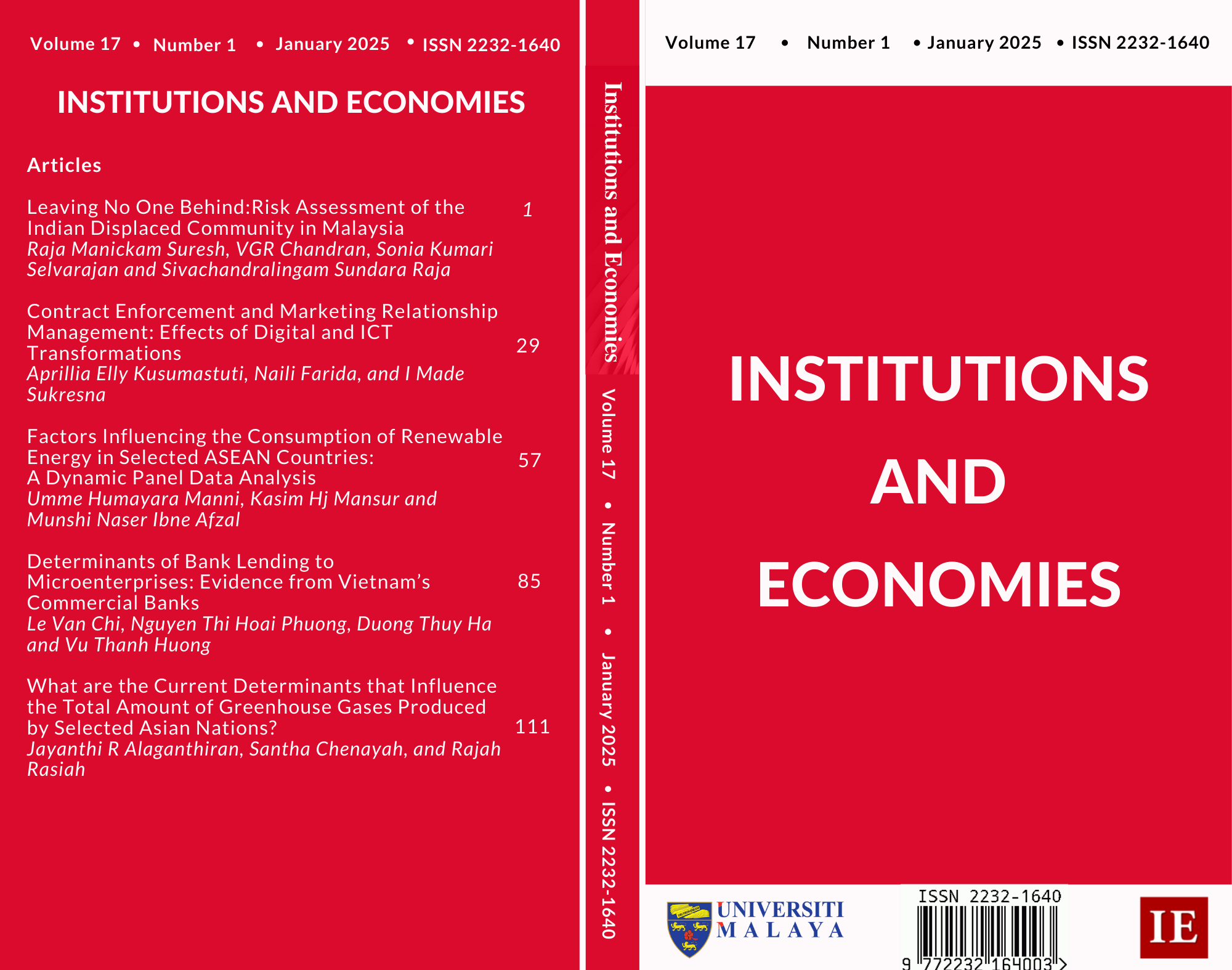Factors Influencing the Consumption of Renewable Energy in Selected ASEAN Countries: A Dynamic Panel Data Analysis
Main Article Content
Abstract
Governments and policymakers have discussed energy security due to the
instability of the global energy market and the risks greenhouse gas (GHG) emissions
cause to the environment. Renewable energy generation and consumption reduce
carbon dioxide (CO2) emissions most effectively. Thus, this paper highlights factors
that, if aggressive environment policies are implemented, might enhance or even avoid
energy security degradation. The study uses a balanced panel data set for Indonesia,
Malaysia, the Philippines, Singapore, Thailand, and Vietnam that covers the 1990 to
2020 period. Pooled panel dynamic least squares are employed in this study. Renewable
energy consumption is favourably influenced by gross domestic product (GDP) per
capita, energy intensity per capita, and installed renewable energy capacity. Utilisation
of renewable energy is inversely related to per capita consumption of electricity, CO2
emissions, and use of fossil fuels. Given the lack of research identifying the factors
influencing energy security in the Association of Southeast Asian Nations (ASEAN),
this study focuses on the drivers that influence energy security, which is explained by
the proportion of renewable energy in final energy consumption. Without identifying
energy demand and supply sources, especially renewable energy-based power generation,
policymakers cannot fulfil their goals.
Downloads
Article Details
Submission of a manuscript implies: that the work described is original, has not been published before (except in the form of an abstract or as part of a published lecture, review, or thesis); that is not under consideration for publication elsewhere; that its publication has been approved by all co-authors, if any, as well as tacitly or explicitly by the responsible authorities at the institution where the work was carried out. Transfer of copyright to the University of Malaya becomes effective if and when the article is accepted for publication. The copyright covers the exclusive right to reproduce and distribute the article, including reprints, translations, photographic reproductions, microform, electronic form (offline and online) or other reproductions of similar nature.
An author may self-archive the English language version of his/her article on his/her own website and his/her institutions repository; however he/she may not use the publishers PDF version which is posted on www.ijie.um.edu.my. Furthermore, the author may only post his/her version, provided acknowledgement is given to the original source of publication and a link must be accompanied by the following text: The original publication is available at www.ijie.um.edu.my.
All articles published in this journal are protected by copyright, which covers the exclusive rights to reproduce and redistribute the article (e.g. as offprint), as well as all translation rights. No material published in this journal may be reproduced photographically or stored on microfilm, in electronic database, video disks, etc., without first obtaining written permission from the publishers. The use of general descriptive names, trade names, trademarks, etc., in this publication, even if not specifically identified, does not imply that these names are not protected by the relevant laws and regulations.
The copyright owners consent does not include copying for general distribution, promotion, new works, or resale. In these cases, specific written permission must first be obtained from the publishers.

